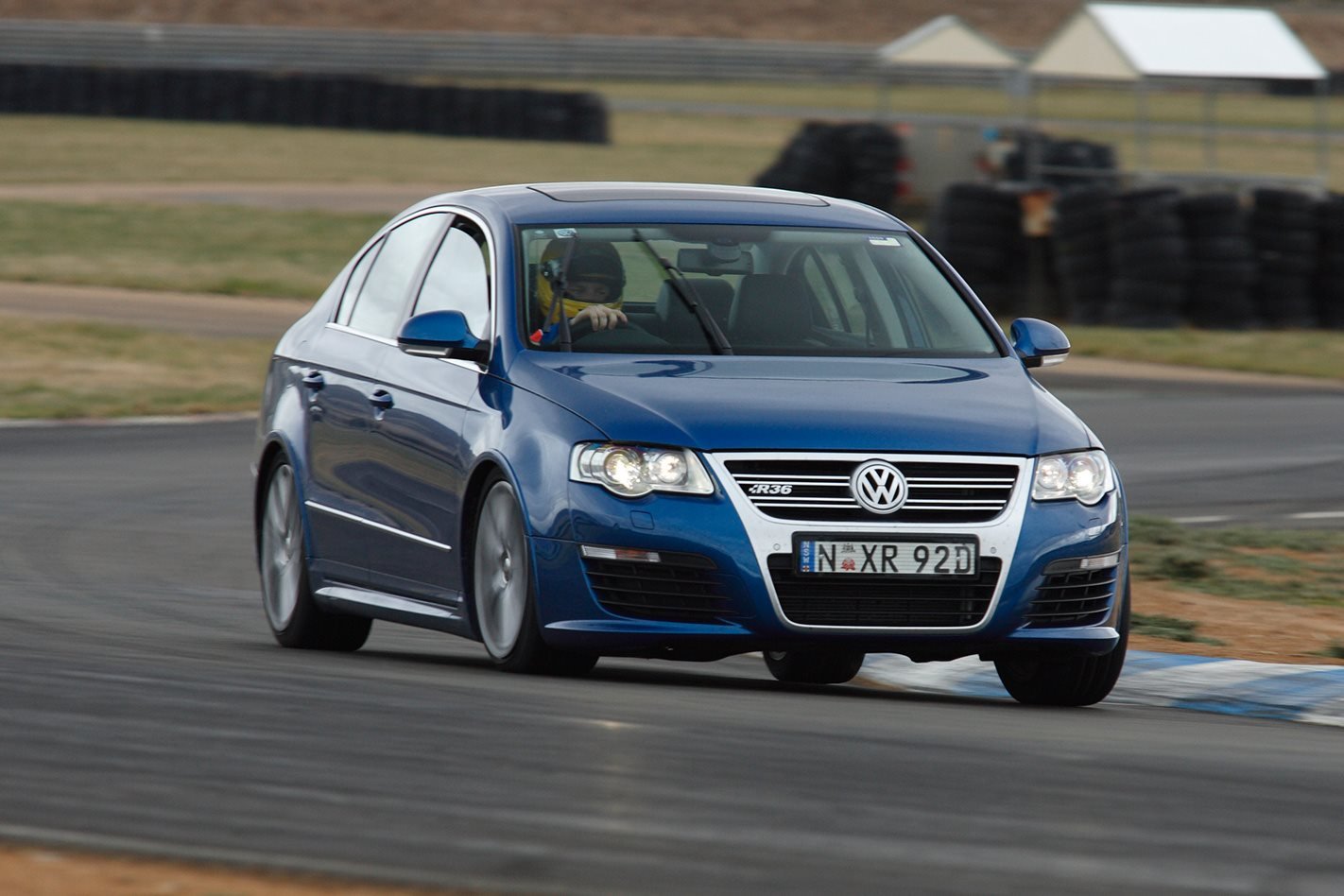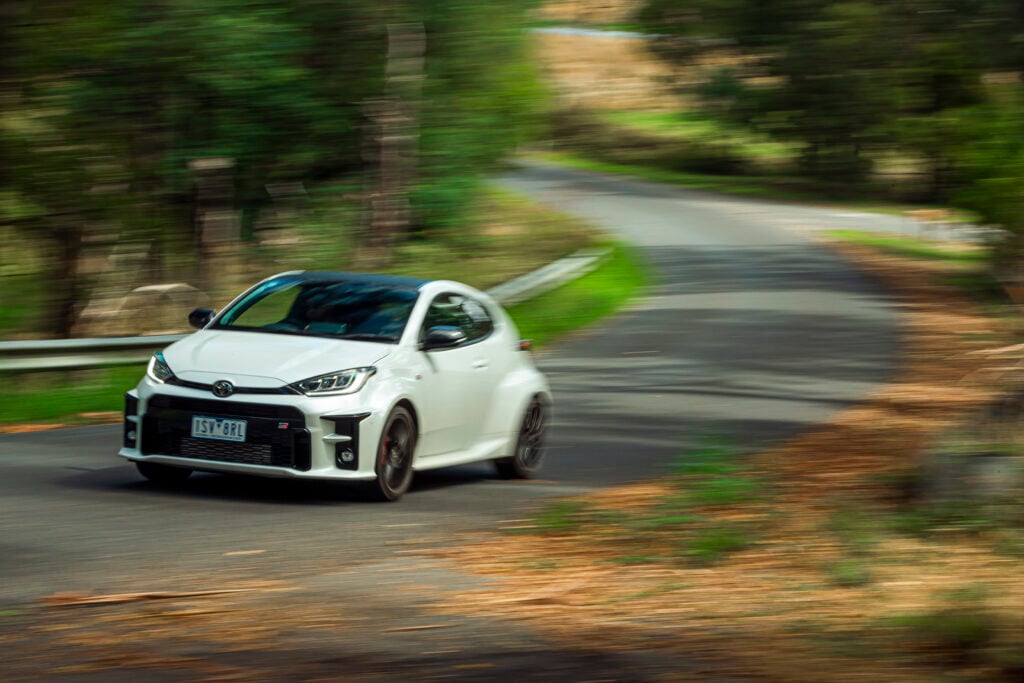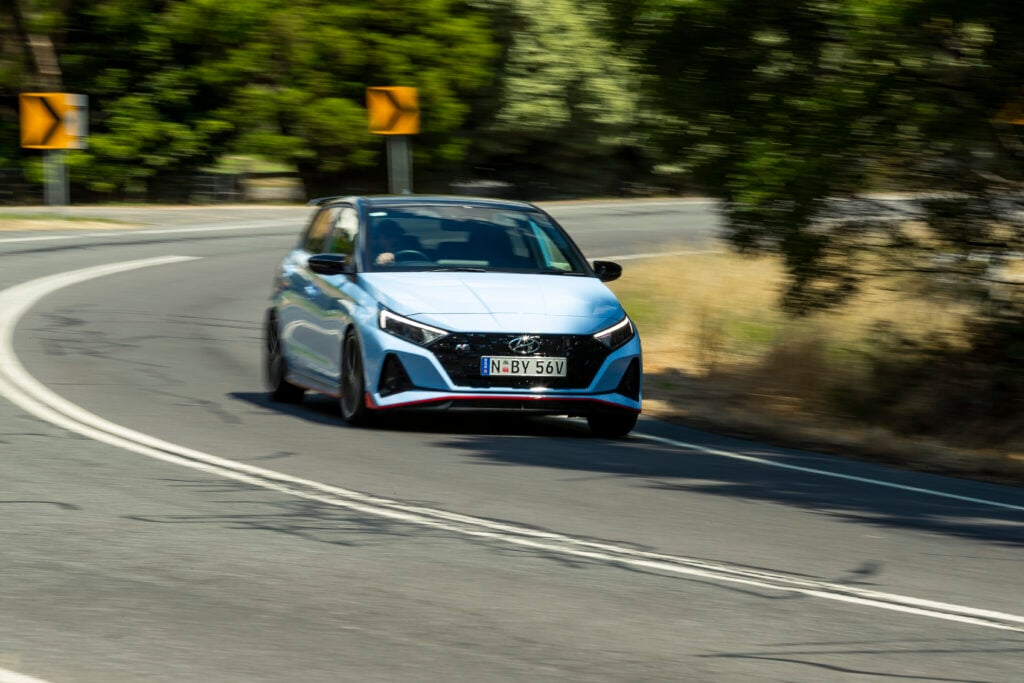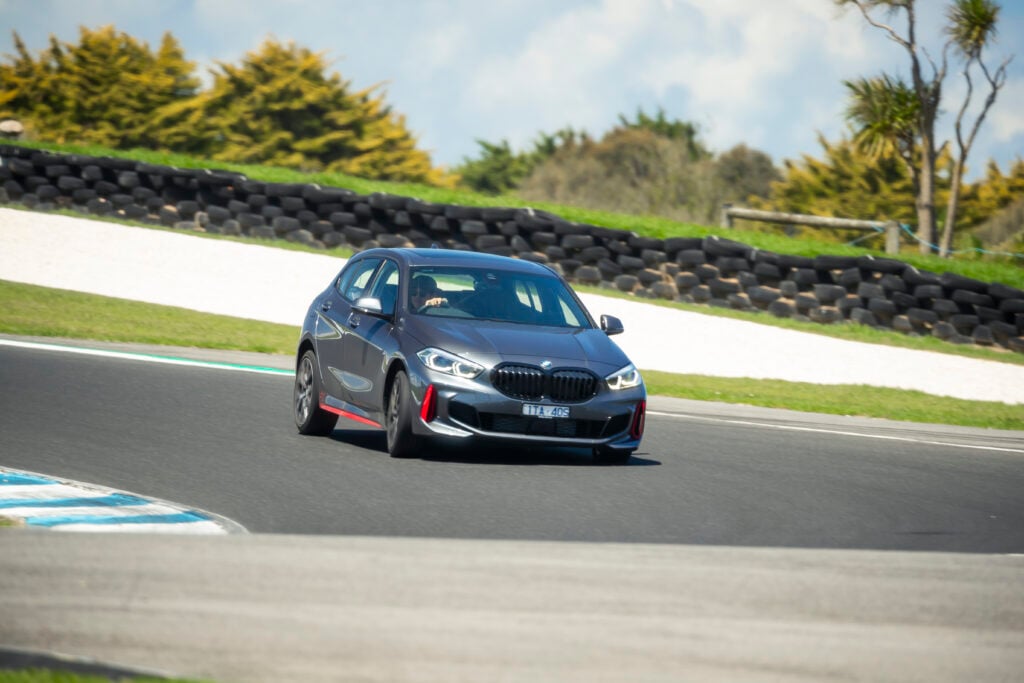IT’S interesting that the fastest Volkswagen ever sold in Australia – in fact, the fastest factory VW ever – happens to be a Passat sedan.
This Performance Car Of The Year article was first published in MOTOR Magazine November 2008.
Yep, a middle-management, safe-as-houses German Camry crammed to the eyeballs with a 220kW V6, six-speed DSG and all-wheel-drive, all for the highly tempting price of $64,990.
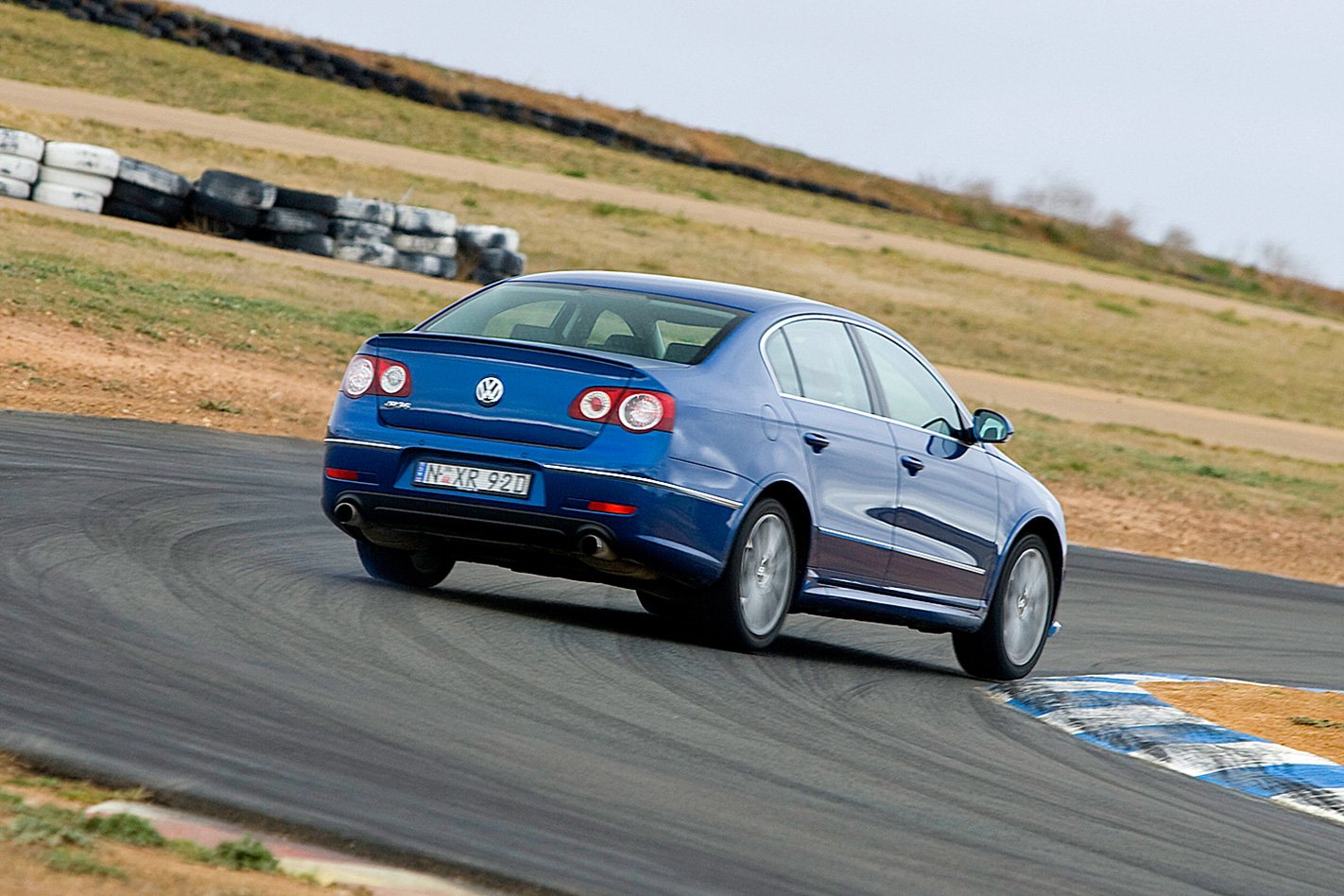
While the visual package is disappointingly sombre and does little to sex-up the Passat’s rather dull styling, once you’re seated in its terrific alcantara-trimmed Recaro chairs, holding yet another great VW sports steering wheel, the R36’s appeal starts to become clearer, without ever threatening to knock your socks off.
Take the R36’s engine – an uprated version of the 3.6-litre direct-injection petrol V6 that also services the base Touareg and Porsche Cayenne.
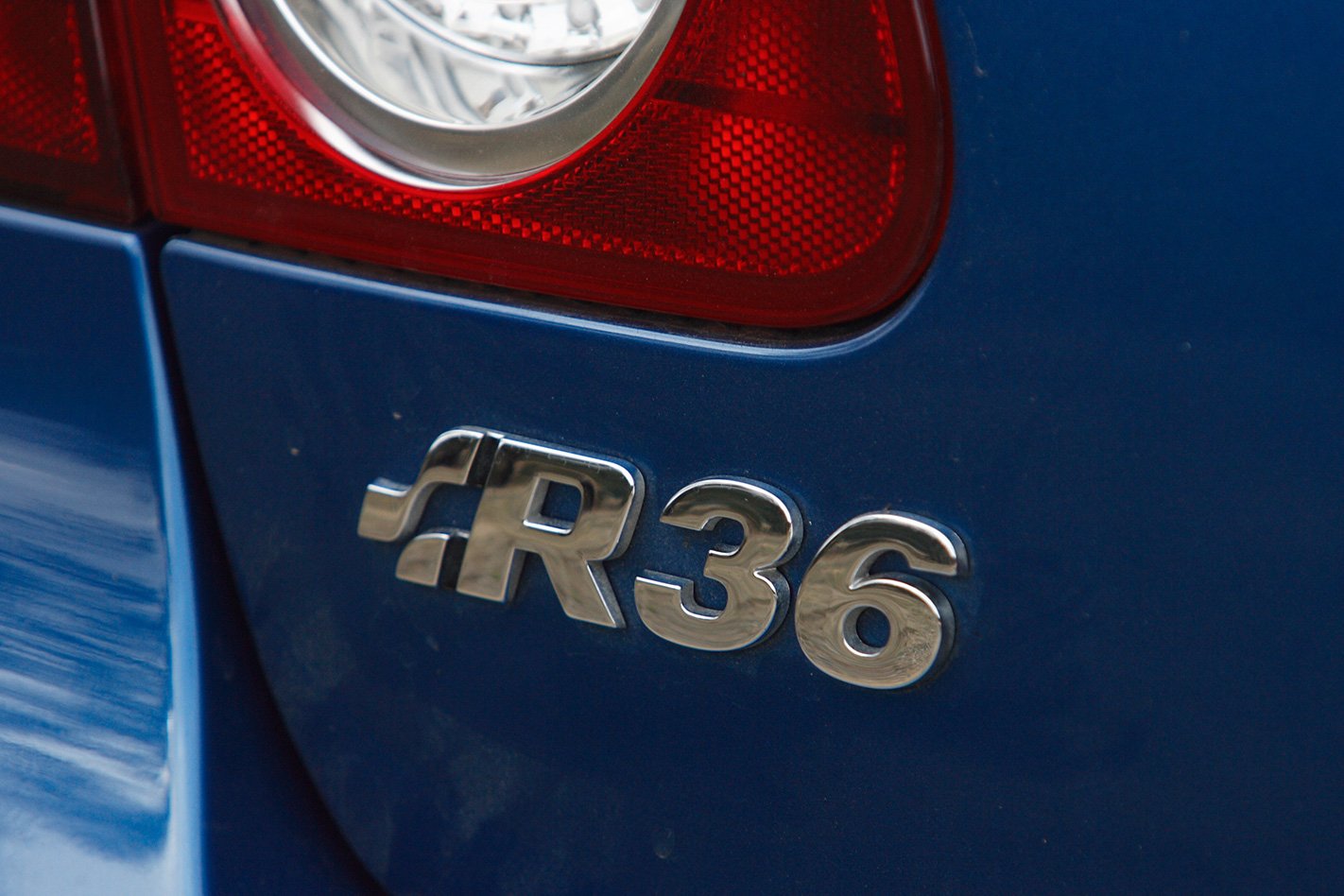
VW’s excellent six-speed DSG helps, too, by hammering home upshifts – accompanied by a trademark exhaust blurt – and then matching revs expertly on downchanges while responding obediently to the driver’s gear selection … which is something that can’t be said of BMW’s M-DCT offering in the M3.
But the Passat’s narrow-angle V6 lacks the flavour of the raspy 3.2-litre in the Golf R32. The R36 does have a slightly more aggressive induction roar than the R32, but the muted rasp of its exhaust note can’t match the tremendous musicality of its smaller relative.
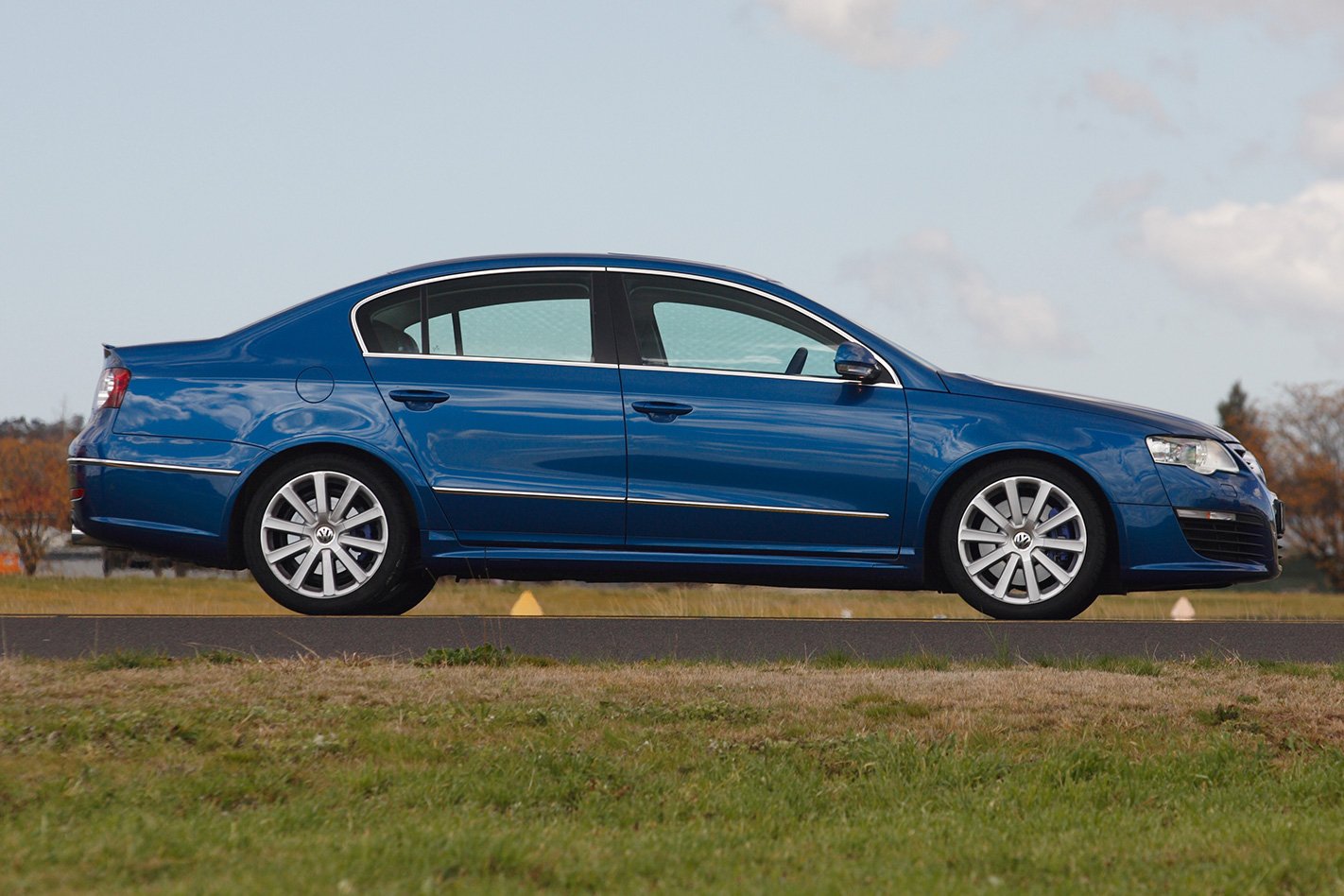
Least-impressive aspect is the R36’s ride quality, which feels a bit too fidgety at low speeds compared to what the Aussie muscle sedans manage on larger wheels, while arguably the best is the R36’s adjustability on a racetrack – delivering a satisfying slip of its tail when trail-braked into corners, and proving surprisingly chuckable for something that really shouldn’t be.
The R36’s brakes did a reasonable, though unspectacular job of hauling it up consistently at Wakefield Park, and if you check out its corner speeds, they’re certainly nothing to be ashamed of – particularly its fourth-placed, Evo-beating result in turn six’s hairpin. Which means as a basis to work with, the all-wheel-drive V6 Passat must be pretty bloody decent.
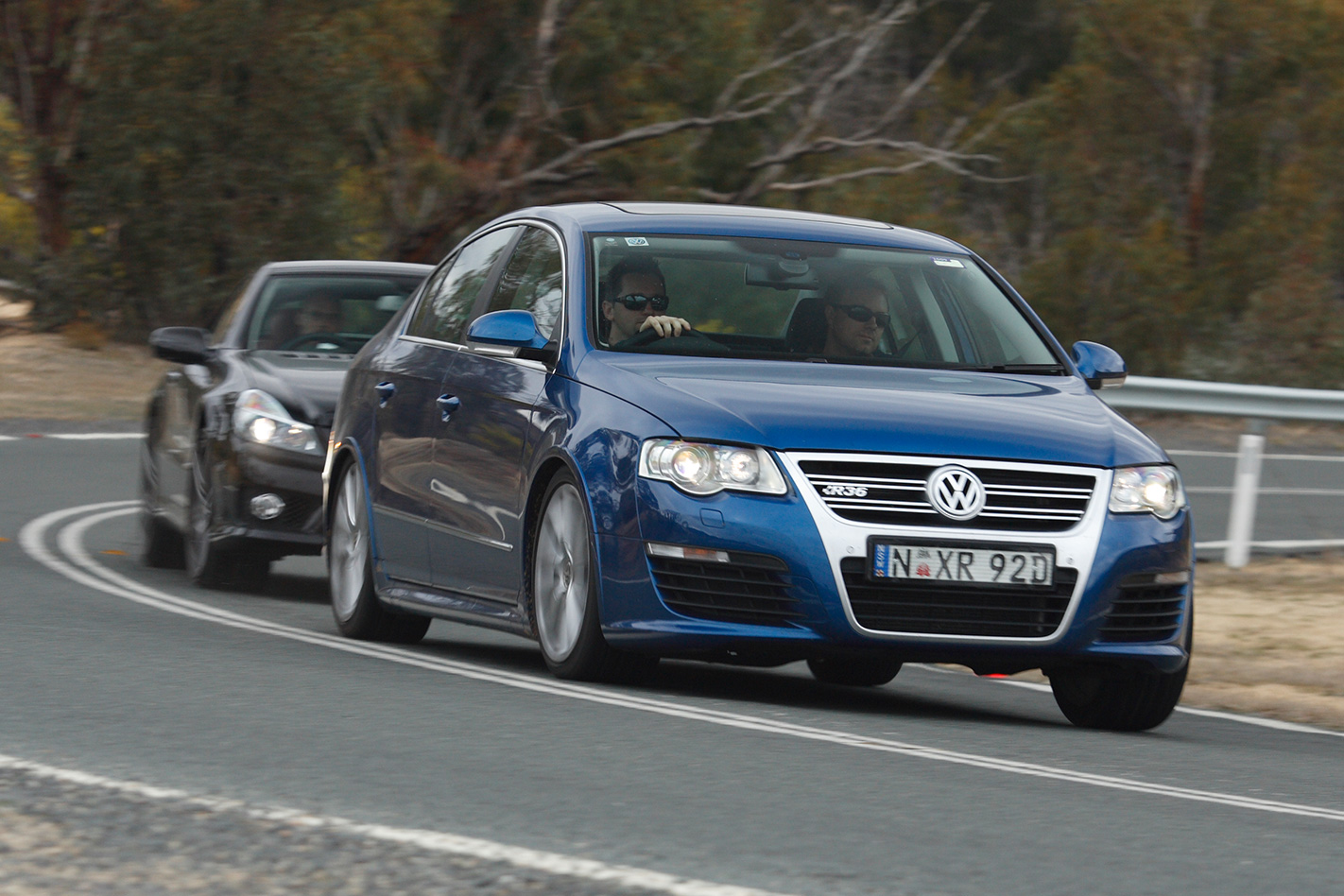
But viewed as a good-value family express (which is basically what it is), the R36’s hearty performance, its surefootedness and its superb seats are enough for it to make an excellent everyday car. Just not a Sunday one.

